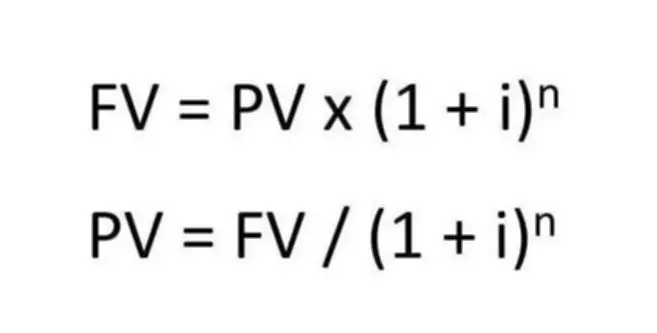Content

When you have an established business, even a small one, having the two work together can allow you to feel secure, knowing that financial experts are making sure your business stays in perfect shape. Entrepreneurs or business owners must have access to the aid of financial service providers such as accountants and bookkeepers during their early growth stages. The proper decisions and plans are made when all the information is available, which is ultimately cost and time-efficient. A small or medium enterprise need not spend time poring over financial statements when they can be focusing on the business. Such bookkeepers undertake assignments that will include generating financial reports and transaction classifying processes, a preserve for accountants. The company may also only require the services of just an accountant, especially where accounting software has memorized transactions and automated the reports.
- Accountants are like financial doctors—they look at symptoms and prescribe something so businesses can improve their financial health.
- Debit and Credit and this principle states that for every debit, there must be an equal and opposite credit.
- QuickBooks Live Bookkeepingmake it easy to handle bookkeeping and bring your finances up to date.
- Learn how to choose an accountant who has the skills your business…
- You might start your business by handling accounting tasks yourself, then decide to hand off the day-to-day transaction input to a bookkeeper as you grow.
The two careers are similar, and accountants and bookkeepers often work side by side. However, significant differences exist, like work conducted in each career and needed to be successful. The following analysis compares the education requirements, skills required, typical starting salaries, and job outlooks for accounting and books. Bookkeeping is a more entry-level position than accounting and requires less education and training. Accountants are responsible for advising businesses on important financial decisions, analyzing source documents, preparing tax returns, and auditing and preparing financial statements. With that being said, there is some overlap between the two positions, and some accountants may be responsible for some bookkeeping tasks.
Job Outlook
More detailed definitions can be found in accounting textbooks or from an accounting professional. Both accounting and bookkeeping involve recording and classifying financial transactions. Since Beth’s restaurant uses double entry accounting, she must make two entries for each financial transaction – a credit and a debit. A credit in one account requires a debit in another account to keep the ledger in balance. For example, if the restaurant buys $1,000 worth of beef, Beth will debit the appropriate asset account and credit the supplier’s account.
The results of work done by the bookkeeper allow the accountant to provide business forecasts, that’s why many mid- and large-sized businesses will need to hire both. Understanding the difference is crucial to submitting appropriate documentation and finding accurate data. The main difference is that bookkeeping involves you or a professional gathering financial data and sorting them into the right places. If your business is large enough or you need another set of eyes, a CPA can help to take it one step further and help you analyze your financial data. The NACPB offers credentials to bookkeepers who pass tests for small business accounting, small business financial management, bookkeeping and payroll.
Benefits of Working as an Accountant
The tasks that bookkeepers and accountants do vary between businesses. Bookkeepers working for smaller businesses might do some basic accounting duties. There’s often overlap, and the duties may change a lot from one business to another. Second, Beth will record the relevant data from each source document. Beth will make an entry into the company’s general journal, which is a chronological list of financial transactions. Recording transactions in the general journal is generally done on a daily basis.
- Awarded by the CFA Institute, the CFA certification is one of the most respected designations in accounting.
- Midsize Businesses The tools and resources you need to manage your mid-sized business.
- Double EntryThe double-entry accounting system refers to the double effect of every journal entry.
- If they don’t balance, she’ll find out why and make the appropriate corrections.
- Since Beth’s restaurant uses double entry accounting, she must make two entries for each financial transaction – a credit and a debit.
- This content is for information purposes only and should not be considered legal, accounting, or tax advice, or a substitute for obtaining such advice specific to your business.
Both accounting and bookkeeping are important for businesses, but they serve different purposes. Sometimes grasping the difference between bookkeeping and accounting can be tricky. Both bookkeepers and accountants work with your finances, both help make your tax reporting a smooth experience. Still, there are some differences that every business owner needs to know when deciding which to choose for their company. Bookkeeping and accounting may appear to be the same profession to an untrained eye. This is because both accounting and bookkeeping deal with financial data, require basic accounting knowledge, and classify and generate reports using the financial transactions.
Bookkeeping vs. accounting: What are the main differences?
The company’s accountant has set up a chart of accounts, such as payroll accounts, supplies, utilities and food and beverage accounts, just to name a few. Bookkeeping is the collection, sorting and recording of the financial transactions of a business. Beth records all the sales transactions and all the expenses incurred by the restaurant on a daily basis. Double-entry accounting is the method most commonly used by complex businesses, accounting vs bookkeeping even very small ones. It is a way of tracking how money flows in and out of your business by entering debits and credits in at least two accounts in a company’s chart of accounts. The debits and credits offset each other with the goal being a net sum of zero to keep the books balanced. As a small business owner, employing an experienced bookkeeper who can set up your books and maintain them accurately will free up invaluable time.

The tools and resources you need to take your business to the next level. Midsize Businesses The tools and resources you need to manage your mid-sized business. Your Guide to Growing a Business The tools https://www.bookstime.com/ and resources you need to take your business to the next level. So just in case of accidental loss or deletion, our accounting cloud solutions regularly back up everything housed in your cloud, nightly.
